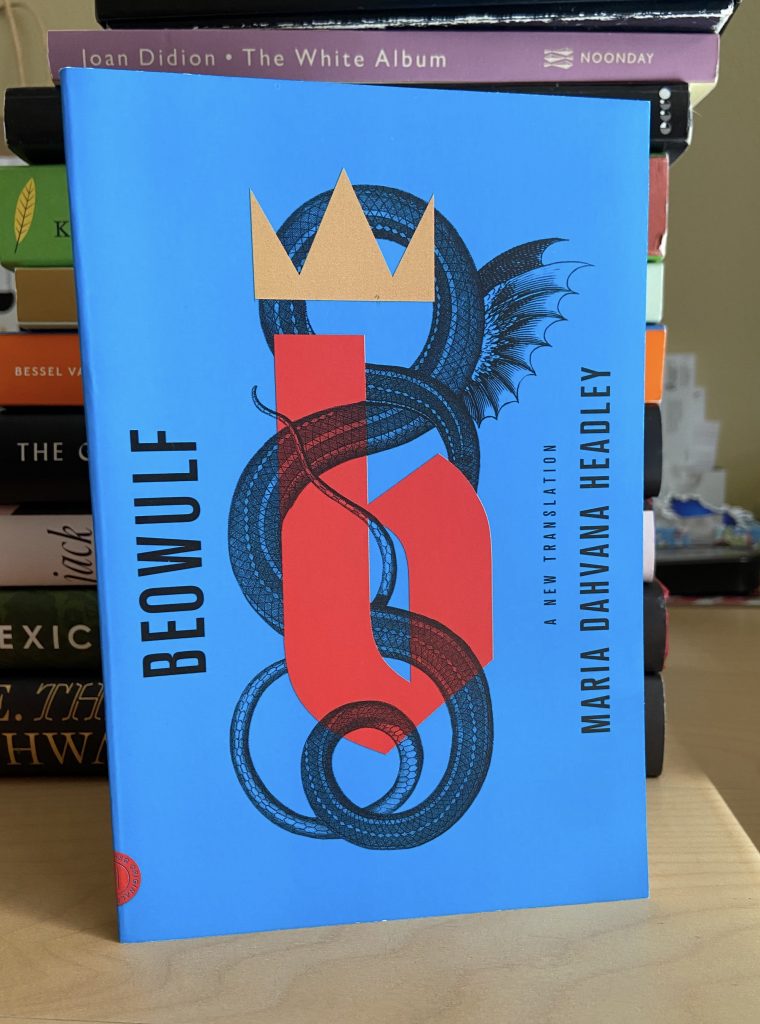
I’m struggling with what the write about Beowulf, as I usually do with anything that’s considered a classic. Like, it’s been around for a million and a half years! There are people who study it for a living! I’ve never even read another translation of it, let alone know very much about it.
So here’s what I can tell you about my reaction to it and why this version of Beowulf instead of a different one. In no particular order:
- The long introduction by the translator, Maria Dahvana Headly, was super helpful to me as a total newbie. She’s coming to Beowulf as a feminist, and Beowulf is very definitely an epic poem about what it means to be a good man. She talks at length about Grendel and Grendel’s mother, and possible not-toxic-masculine interpretations of those characters. But also, just in a grounding of the poem and what it was about? I really appreciated it.
- And I appreciated the lens of healthy masculinity that the translator brought to it. It’s very much in the same vein as Emily Wilson’s translation of The Odyssey, using words that are more modern and attempt to convey relationships and status in a more modern way.
- Speaking of Grendel and his mother… they’re in it a lot less than I thought. I came to the epic assuming that it was one hero’s journey type of a story, like The Odyssey. But it’s really three smaller adventures tied into one big story. Grendel is the villain of the first one, his mother is the antagonist in the second, and there’s a dragon hoarding gold in the third.
- Apropos of the dragon in the poem, here’s a bit of history. The Romans left Britain in roughly 410, and there’s very little to no written history of what happened in Britain from that point until the Venerable Bede writes in the 700s. But people keep finding stashes of Roman Gold hidden away on the island, dating from those uncharted years. The latest hoard was found in 2012. So, hidden stashes of gold weren’t uncommon on the island, though dragons are unlikely to have been involved.
- I do love that the poem starts out “Bro!” Like the person telling it is your drunk brother.
I can’t tell you if this translation is better than others or deep meanings about Beowulf. But I enjoyed it.